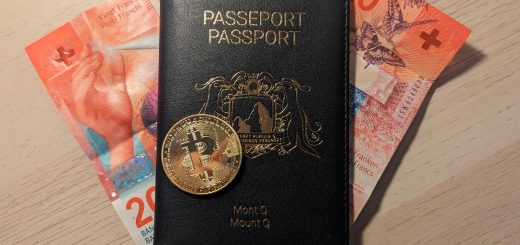One year of family budget
Taking back control of your finance mean tracking your expenses and plan some budget. It might be quite simple and straightforward for some individual and a nightmare for others. There is already a ton of blog articles, books and software that claim to have the best method to achieve that. At the end it’s mostly a matter of discipline and trying what’s work best for you. But when the you is not an individual but a family, things can get a little more complicated. It must be a coordinated effort, while often agreed on the principle, the practical part might pose some serious challenges. Spoiler alert, so you don’t get disappointed, this article will not give you any miracle formula how to achieve that painlessly and fast, instead I will tell our path to expense tracking and budget for our family and leave open questions as we still didn’t reach an optimal setup. I hope you can learn from it and avoid some of our mistakes, that I did even after reading countless of articles and books on the subject. Maybe you will even want to share some tips in the comments below the article after reading it.

Background history
I was in couple since my studies, so I have always been in couple since I earn my own money. In the beginning our finance were separated and while not have huge income, we used to earn enough not to care about precise budget and expense tracking, we were (thinking to be) quite reasonable in our lifestyle, never going into debt, never using any credit, leasing of what ever money borrowing scheme but also without restricting us on any needs, treat or experience. There was always enough money to pay the bills, get this new stuff that we need absolutely, going out for diner/cinema/party/short trip and to plan our main holiday of the year at the other side of the world (no regret, it was amazing moments). But then the couple became a family, and soon only one could continue to work 100%. Eventually only the higher salary remain while the other take care of the 3 kids full time. For a year or so it was still OK, mostly thanks to a new job that increase the only income of the family, plus bonus from the previous job that was still coming months later and a move to a less expensive area of Switzerland that allow us to not increase too much our housing cost to accommodate the growing family. But we were just waiting to get catch up. Expense were increasing but also tax were increasing with higher income and wealth from early investment. Until a point were all the money that we thought as saved and ready for more investment into a third pillar 3a or whatever were in fact just enough to pay the taxes and other unexpected bills incoming.

There were already discussions and failed attempt to create a budget for 2 or 3 years but end of 2020 I took this in hand. I spend so much efforts doing amazing spreadsheets for my work, it was time to use this knowledge for my own use. So in November and December I prepared my spreadsheet, always adding more and more to cover all use cases and complicated situation resulting from our financial setup. After some tests, I was ready for 1st of January 2021 to start tracking every cent spend in the family. And here started all the trouble.
It’s not rocket science
First I was constantly blocked by a new situation that I didn’t plan, I had to make the spreadsheet bigger and more complicated at each step. Adding categories and sub-categories that I didn’t think about initially. Adding a way to split these Coop and Migros receipt where there was 3 or 4 categories mixed. And where should I sort this Post receipt with 7frs for a package to send a gift for a friend’s newborn, 7frs for sending something sold on Anibis that was paid for by the buyer and 5frs for a registered letter to cancel an insurance contract?? And here I was the one who paid for these expenses and manage to write down or remember the details. Often I end up with receipts for something spend by my partner, where I have no idea what it is. And I was even lucky if I still have the receipt, most of the time I have to figure out with the statement of the credit card. “W&W Intl. Ltd – 39.90frs”, “Klarna Bank Deutschland – 111frs” What the hell are these expenses? And all these spending at Manor or other department stores. It could be a coffee at Manor restaurant, clothing for my partner or for a kid, paper for the printer, jewellery, makeup, shampoo or toys either for our kids or as a gift for a birthday party. Department stores are the nightmare of expense tracking.
Once the job done for the shared account statement it is far from complete. I have to do it for all cards and bank accounts. Shared account at one bank, one personal account each at Neon, one Revolut account each and two credit card statements (one of them that include 4 different cards!). Each used a different setup for their CSV export, date format and management of currency exchange, not talking about Revolut that change completely their CSV format in the middle of the year.
On top of that, the more I’m asking my partner for details on expenses, the more it put stress on our couple. On one side it is embarrassing to put the person accountable of the spending that are mostly needed for the family and on the other side there is a feeling to be constantly spied on every spending. It could be perceived worst if the partner has no direct source of income even if I repeat that it doesn’t matter, it’s just family income now but it still has a psychological effect somehow. I guess the untold reason is that unpaid work done at home is more difficult to quantify than money landing on a bank account each month. My partner couldn’t explain it to me explicitly so far and I have never been in such situation since my parents paid for most of my expenses as a student. I think what was easier at the time was that important bills like dormitory rent with side costs, taxes, transportation pass and everything related to school were paid directly, and the rest was free to spend between food and leisure. When the money is out, it’s out, wait next month. I couldn’t recreate that with our family setup as categories of spending are much more complex and irregular.
After one year it’s time to make it simple
I still managed to keep up for the full year like this, with some adaptation here and there to make it slightly easier but for 2022 I had to make it even simpler otherwise I might not keep the pace and just give up at some point. First step is to reduce the categories. No more split in the supermarket bills between food, cleaning and care products. Supermarket is one category and the later two sub-category were marginal and quite stable anyway, no significant saving to be done here. This supermarket category averaged at 1300CHF in 2021, which is not bad for a family of 5 (260CHF per person, or about 350CHF per adult and 200CHF per kid). I merged some other expenses, like medical bills, pharmacy expenses and health insurance. Holiday is one category and no more split in travel, housing, food and entertainment, it was such a nightmare to track, especially on holiday you are less willing to do that.
But the major simplification came from our personal expenses and usage of our personal account and Revolut cards. There is only two budgets for personal expenses one for Mrs and one for Mr. It’s transferred on each Neon personal account and counted as personal expense Mr or Mrs. Then no more detail is registered if it’s spend on shopping, entertainment, restaurant or travel (without the rest of the family). It doesn’t even have to be spend on these categories or even spend each month, one can keep some personal saving for a new smartphone, computer or special travel with friend which should not necessarily happen every year. The only important thing is to be clear on what is a personal category and make sure that these are always be paid with the cash available on the Neon account.
My trick to manage Revolut cards
Revolut cards can be used both for personal or family expenses. So it mostly stays low on cash, if not close to zero. And it can be top-up in a minute with either the family credit card or the personal card from Neon. Need to purchase something online in foreign currency for the family, top-up the amount needed with the family credit card and it will be assigned the proper category manually. Need to use the disposable card for a personal expense, top-up with the Neon card. Leftover in CHF can be send back by free bank transfer within 15min on week days (one of the best feature of Revolut in my opinion). If there is a large leftover in EUR after holiday (or other often used foreign currency) on Revolut, it can be moved to a saving pot for later holiday or even convert back to CHF to transfer it back as the exchange rate is very low anyway. If the wrong card is used for an emergency in case it was not possible to top-up fast enough or other reason, it can always be corrected by another transaction later on, but with the habits it should rarely be the case.
These two simplification will really save time on expense tracking by removing 4 accounts from the spreadsheet and it allows to automate more categories assignment in the spreadsheet. It will also remove some of the stress and feeling of being tracked in every move. We are each free to spend our personal budget the way we want without asking the other one if we don’t want to, similarly to my budget as a student.
There are still some problems to be solved, first how to manage personal expenses still being charged on the family credit cards. Hopefully it will be only a transition period to adapt and there shouldn’t any after some time. Then it’s to agree on the type of expense that are personal or not and how much each should have in this budget. I quickly figure out that we don’t (need to) spend the same amount to feel comfortable and not restricted in our lifestyle. But this can have a negative effect that the one spending more on personal feel guilty that he need more, or the one spending less could be tempted to rise the expense to be on part or closer eventually. This has to be seen on a longer period.
Beside that, other categories are still quite questionable when we look at the figures. How much should we allocate to clothing? Kids need always new clothes, new shoes, because they grow up constantly and wear down much faster their clothes than an adult. How much is reasonable for family entertainment (movie at cinema, show, indoor playground, attractions at Luna Park, day trip to a theme park, sport, music lessons,…)? family shopping (toys, DIY material)? for gift outside the family (Christmas, birthday of family and friend, newborn, wedding, retirement of a colleague,…)? for house furniture and supply as well as gardening and electrical goods? In 2021 these categories sum up about 10’000CHF or 833CHF on average per month. These are the categories were we can save probably, but it’s also the most difficult to track and reduce as it need constant discipline to not overspend. I also guess that it’s because these purchases are mostly linked to pleasure and comfort or at least the idea of pleasure and comfort we might have at the moment of purchase, even if some of them will end up unnecessary and not bringing any pleasure nor comfort after just a few days or months. This is a very sensible and difficult topic to discuss in the family at the moment.
We will try to work on these aspects in 2022 now that we have a better overview of our expenses and that we have already refocus some of the budget toward categories that we care the most first. If you have ideas to help improving on these points I would be happy to read it in the comments below.
If you like this post, be sure to subscribe by RSS and follow me on Nostr and Mastodon to not miss any future post.
Disclaimer I’m not a financial advisor, nor a professional in any kind of industry link to finance, cryptocurrencies nor tax legislation. I’m just giving my personal opinion and life advise about topics that I like and experiment by myself on my free time. My articles could always have mistakes, inaccuracies or lead to misunderstanding of a more complex topic. I cannot by any mean be liable for any loss or issue you could have by following any strategy or using any app or product that I mention in my articles. Using any kind of investment product, cryptocurrencies, smart-contracts, app or tool always come with a certain risk. Before engaging your data, time and money in any activities, always do you due diligence and get informed by yourself about the implications and risks.
Affiliate links Some links in my articles can be affiliate links, usually I mention it explicitly. This mean that if you use the link to a shop or service and then buy the product or subscribe to the service offered, I will get a small commission on your purchase. For you it doesn’t cost anything more and in some case it’s also linked to a promotion where you can get a small discount as well, I try to write it clearly if it’s the case.
If you use the link and buy something there, I will know that someone did but I will not know anything about this person. If you don’t agree to use the affiliate link please visit the website of the shop or service by yourself, for example using a search engine without using an ads at the top of the results of course. If you agree to use them and make a purchase, thanks for the small support.
When I decide to place an affiliate link for a product or service, it’s not because I will maybe get some money from the affiliation but because I truly believe in the product/service and I’m using it myself. I will recommend the same way a product or service that doesn’t offer affiliation and will never give the advantage or highlight one product/service just because it offers an affiliation or because the commission offered is higher, but I hope it’s reflected well in my article.



